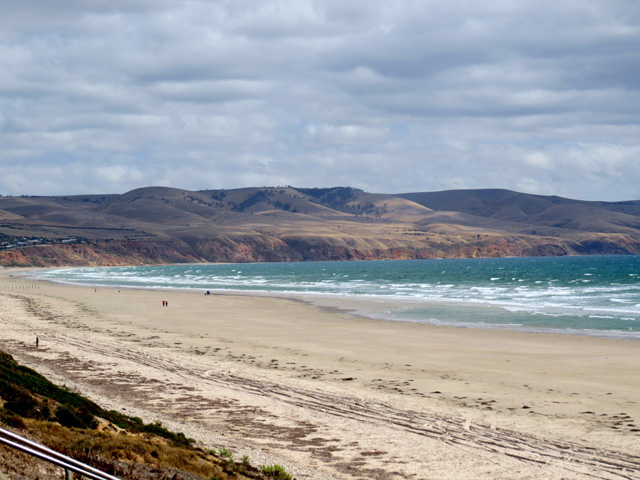The reader might recall South Australia some time ago, where twelve new Safe-T-Cams have been 'happy snapping' unsuspecting motorists, show that there were 11,699 unregistered vehicles - more than 30 a day - recorded during a recent 12 month period.
These figures are from the South Australian Transport Department figures, and reported in The Advertiser newspaper, and re-posted on 'Adelaidenow' news service. Accident Commission corporate affairs general manager Ben Tuffnell said he was astonished at the number of drivers caught out by the new technology.
Apart from the fact that it is illegal to drive an unregistered vehicle (partly to ensure the safety of the car and the safety of the driver and general public), the main issue with unregistered vehicles in all states in Australia is that these vehicles are also “totally uninsured”.
Although this report is from South Australia, in all states there are similar regulations you cannot register a vehicle without compulsory third party insurance (in New South Wales, it is called the 'green slip'). This covers the driver if another's property or person is damaged or injured.
Other types of insurance are voluntary you can choose whether or not to have different levels of cover for your car, in case of accident or breakdown. But this 'CTP' or 'compulsory third party' is mandatory for all vehicles. According to the article, the accident Commission corporate affairs general manager Mr Tuffnell said: ''That's a disturbing figure. From our perspective, it's vital that everyone registers their car because in that registration process, they are also taking out a policy of compulsory third-party insurance.
"We will chase you, being the person at fault, to recover our money,'' he said. ''Even a small whiplash accident ... can amount pretty quickly to $50,000 or $100,000.
"With spinal injuries or brain injuries, the cost can be many millions of dollars. In all likelihood we wouldn't recover all of that, but we would certainly do all we could to make that person pay some sort of contribution to the cost we have to pay out.''
Even if you do not have an accident, the fines for driving an unregistered vehicle (which of course will not have insurance) in most states of Australia are extensive upwards of $1000.
There are inevitably some in our society who would flout the rules regardless, and perhaps cost is a factor. In NSW where I live, a motorist needs around $1700 a year to register, obtain compulsory third party, and perhaps a minimum optional policy covering 'third party property' to protect their vehicle and person. This is just to put the car on the road, and does not include driving licence, petrol, repairs and servicing.
Home insurance
The issue of adequate house insurance is also in the news in Australia at the moment, with regards to recent bushfires and more recent floods and cyclones. Some people think that insurance premiums in risk areas should be even higher; while others think there should be 'community funding' available for unwitting persons who find their home devastated while others feel this is too much of a burden on those who already pay their own adequate insurance premiums.
Some others even feel that there should be tighter regulations about where people can build homes, in the first place.
Consider flooding and cyclones. We already have a Medicare levy to ensure everyone has basic health coverage, but people can buy more insurance if they like. And other special 'levies' have been raised through the tax system for special circumstances.
The philosophy of charging for motor vehicle registration and compulsory third party insurance, I wonder if there are more than enough benevolent purposes in a civil society for families to have a motor vehicle or two that the citizenry is doing the Government's work normal every day things like driving people to hospital and visiting them (or the doctor), helping with fetes and the like. The list of these every day benevolent tasks is almost endless.
This idea needs further exploration. Many would affirm that taking and collecting the children from school might is a benevolent purpose, ensuring the next generation is protected. Taking oldies to visit other oldies in hospital is a benevolent purpose. Shopping for the groceries to keep the nation's families fed might also be deemed a benevolent activity. Mark Tronson further asks, why should the society at large, or individual families, pay for doing this benevolent work by paying $1700 a year for the privilege?
One could take this argument further, taking work vehicles as another example. The activities associated with work vehicles keep the entire nation fiscally afloat, so therefore, why should they be slugged with a different set of taxes when they are already funding payroll tax and income tax?
Has this huge number of unregistered vehicles therefore, a protest element to it? Are individuals indicating that there should be some sort of 'overall coverage' for using a car for essential tasks?

Cost to society
On the other side of the coin, the alternative is to ask, what is the cost to society for the roads, the guttering and curb, traffic lights, road signs, marking on the roads, driving training, licensing process and all this costs money. There is an argument that those who 'use' the services or those that 'choose' to buy houses in areas potentially affected by known natural disasters, should pay extra premiums.
There are already systems in place across the States whereby those of low income can pay off such things as motor vehicle registration, without needing a large sum 'up front'. There is also a similar scheme for University students' fees, which is now being copied world wide, the famous HECS scheme. (Higher Education Contribution Scheme).
Perhaps it is now time, as it was when Moses heeded Jethro's advice, that the Government get together people of 'common sense' around a table and find an accommodating outcome.
In the New Testament, too, there is a reference to this. Romans 15 verse 3 has states that we are required to pay our taxes even to Governments hostile to Christians.
Perhaps it is time now to reconsider, to see how much of the common purse should be set aside to ensure basic insurance for those whose means are small. Others could buy more cover if they so desired.
 Dr Mark Tronson is a Baptist minister (retired) who served as the Australian cricket team chaplain for 17 years (2000 ret) and established Life After Cricket in 2001. He was recognised by the Olympic Ministry Medal in 2009 presented by Carl Lewis Olympian of the Century. He mentors young writers and has written 24 books, and enjoys writing. He is married to Delma, with four adult children and grand-children. Dr Tronson writes a daily article for Christian Today Australia (since 2008) and in November 2016 established Christian Today New Zealand.
Dr Mark Tronson is a Baptist minister (retired) who served as the Australian cricket team chaplain for 17 years (2000 ret) and established Life After Cricket in 2001. He was recognised by the Olympic Ministry Medal in 2009 presented by Carl Lewis Olympian of the Century. He mentors young writers and has written 24 books, and enjoys writing. He is married to Delma, with four adult children and grand-children. Dr Tronson writes a daily article for Christian Today Australia (since 2008) and in November 2016 established Christian Today New Zealand.
Mark Tronson's archive of articles can be viewed at http://www.pressserviceinternational.org/mark-tronson.html

Dr Mark Tronson - a 4 min video
Chairman – Well-Being Australia
Baptist Minister 45 years
- 1984 - Australian cricket team chaplain 17 years (Ret)
- 2001 - Life After Cricket (18 years Ret)
- 2009 - Olympic Ministry Medal – presented by Carl Lewis
- 2019 - The Gutenberg - (ARPA Christian Media premier award)
Gutenberg video - 2min 14sec
Married to Delma for 45 years with 4 children and 6 grand children